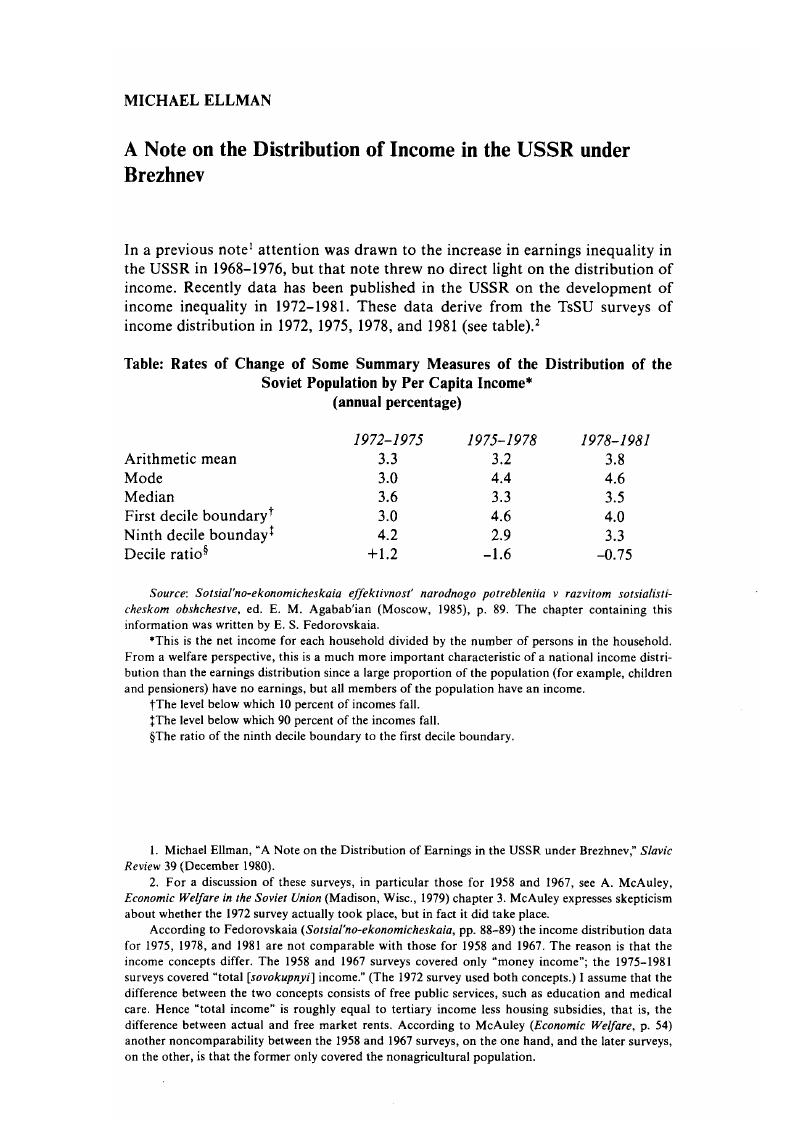No CrossRef data available.
Article contents
A Note on the Distribution of Income in the USSR under Brezhnev
Published online by Cambridge University Press: 27 January 2017
Abstract

- Type
- Notes and Comments
- Information
- Copyright
- Copyright © Association for Slavic, East European, and Eurasian Studies. 1987
References
1. Michael Ellman, “A Note on the Distribution of Earnings in the USSR under Brezhnev,” Slavic Review 39 (December 1980).
2. For a discussion of these surveys, in particular those for 1958 and 1967, see A. McAuley, Economic Welfare in the Soviet Union (Madison, Wise, 1979) chapter 3. McAuley expresses skepticismabout whether the 1972 survey actually took place, but in fact it did take place.
According to Fedorovskaia (Sotsial'no-ekonomicheskaia, pp. 88–89) the income distribution datafor 1975, 1978, and 1981 are not comparable with those for 1958 and 1967. The reason is that theincome concepts differ. The 1958 and 1967 surveys covered only “money income “; the 1975–1981surveys covered “total [sovokupnyi] income.” (The 1972 survey used both concepts.) I assume that the difference between the two concepts consists of free public services, such as education and medicalcare. Hence “total income” is roughly equal to tertiary income less housing subsidies, that is, thedifference between actual and free market rents. According to McAuley (Economic Welfare, p. 54)another noncomparability between the 1958 and 1967 surveys, on the one hand, and the later surveys, on the other, is that the former only covered the nonagricultural population.
3. According to Fedorovskaia (Sotsial'no-ekonomicheskaia, pp. 89–90) the decline in incomeinequality in 1975–1978 was caused by the increase in the minimum wage (to 70 rubles a month)and by raising the tax threshold. In 1978–1981 the increase in pensions may have been a factor.
4. McAuley, Economic Welfare, pp. 53–55, A. Bergson, “Income Inequality under Soviet Socialism,” Journal of Economic Literature 22 (September 1984): 1, 068–1, 069.


